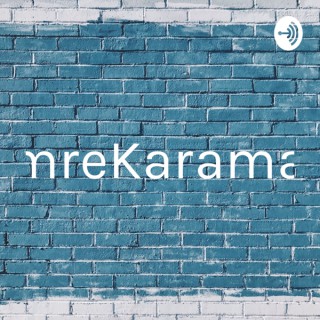Podcasts about odas
- 169PODCASTS
- 1,707EPISODES
- 54mAVG DURATION
- 5WEEKLY NEW EPISODES
- Feb 16, 2026LATEST
POPULARITY
Categories
Best podcasts about odas
Latest news about odas
- Delibreads Offices by ODAS Retail Design - Dec 18, 2025
- Open House (9) diamond geezer - Sep 23, 2025
- The Rise And Fall Of Afghanistan’s Local Defense Forces – Analysis Eurasia Review - Jan 28, 2025
- “Odas Balkonale –”, 2021, by N&MS for 100 Beste Plakate - typo/graphic posters typo/graphic posters - Aug 23, 2024
- France/Saudi Arabia/United States : ODAS embarks on legal battle with hardball player Zamil Group Intelligence Online : Issue - Jan 29, 2024
- Sumi 10 Ounce Beverage Glasses...odas, For Restaurants or Homes - down 3.48% ($0.71) to $19.72 from $20.43 Top Amazon Price Drops - Sep 8, 2022
Latest podcast episodes about odas
Kripto Odası (16 Şubat 2026) by Kafa Radyo
Kripto Odası (13 Şubat 2026) by Kafa Radyo
Kripto Odası (12 Şubat 2026) by Kafa Radyo
Kripto Odası (11 Şubat 2026) by Kafa Radyo
Kripto Odası (10 Şubat 2026) by Kafa Radyo
Kripto Odası (06 Şubat 2026) by Kafa Radyo
Kripto Odası (05 Şubat 2026) by Kafa Radyo
Kripto Odası (04 Şubat 2026) - PSK Elif Özlük by Kafa Radyo
Kripto Odası (03 Şubat 2026) by Kafa Radyo
Kripto Odası (02 Şubat 2026) by Kafa Radyo
Kripto Odası (30 Ocak 2026) by Kafa Radyo
Kripto Odası (29 Ocak 2026) by Kafa Radyo
Kripto Odası (28 Ocak 2026) by Kafa Radyo
Pablo Neruda fue un poeta, diplomático y político chileno, considerado una de las grandes voces de la literatura universal del siglo XX. Nombre real: Ricardo Eliécer Neftalí Reyes Basoalto. Nacimiento: 12 de julio de 1904, en Parral, Chile. Fallecimiento: 23 de septiembre de 1973, en Santiago de Chile.Adoptó el seudónimo Pablo Neruda inspirado en el escritor checo Jan Neruda. Desde muy joven comenzó a escribir poesía, alcanzando fama temprana con Veinte poemas de amor y una canción desesperada (1924), un libro de enorme repercusión en toda Hispanoamérica. Su poesía pasó por diversas etapas: lírica amorosa, poesía política y social, y obras de tono épico.Entre sus libros más destacados están Residencia en la tierra (1933-1935), Canto general (1950), Odas elementales (1954-1957) y Memorial de Isla Negra (1964). Su obra combina una fuerte carga emocional, imágenes sensuales, compromiso político y una visión cósmica de la existencia. Fue cónsul en varios países, entre ellos España, donde vivió la Guerra Civil y se comprometió con la causa republicana.Militó en el Partido Comunista de Chile y fue senador. Se convirtió en un referente cultural y político de la izquierda latinoamericana.Premios:Premio Lenin de la Paz (1953).Premio Nobel de Literatura (1971), otorgado por "una poesía que con la acción de una fuerza elemental da vida al destino y a los sueños de un continente".Falleció poco después del golpe militar de Pinochet, en 1973. Su muerte ha estado rodeada de sospechas de envenenamiento, aunque oficialmente se registró como consecuencia de un cáncer de próstata.
Kripto Odası (27 Ocak 2026) by Kafa Radyo
Kripto Odası (26 Ocak 2026) by Kafa Radyo
Kripto Odası (23 Ocak 2026) by Kafa Radyo
Kripto Odası (22 Ocak 2026) by Kafa Radyo
Kripto Odası (21 Ocak 2026) by Kafa Radyo
Kripto Odası (20 Ocak 2026) by Kafa Radyo
Kripto Odası (19 Ocak 2026) by Kafa Radyo
Kripto Odası (16 Ocak 2026) by Kafa Radyo
Kripto Odası (15 Ocak 2026) by Kafa Radyo
Kripto Odası (14 Ocak 2026) by Kafa Radyo
Dün akşam ‘Akıl Odası'nda İran'ı konuştuk. Bugün ‘buzun altına' bakalım… Trump ABD'sinin mevcut ‘Grönland' politikası, ‘yeni dünyaya, yeni düzene' dair Amerikan tahayyülünü, ardındaki ‘metabolizmayı' en iyi anlatan örnektir…
Kripto Odası (13 Ocak 2026) by Kafa Radyo
Kripto Odası (12 Ocak 2026) by Kafa Radyo
Kripto Odası (9 Ocak 2026) by Kafa Radyo
Kripto Odası (8 Ocak 2026) by Kafa Radyo
Kripto Odası (31 Aralık 2025) by Kafa Radyo
Kripto Odası (30 Aralık 2025) by Kafa Radyo
Kripto Odası (29 Aralık 2025) by Kafa Radyo
Kripto Odası (26 Aralık 2025) by Kafa Radyo
Kripto Odası (25 Aralık 2025) by Kafa Radyo
Kripto Odası (24 Aralık 2025) by Kafa Radyo
Kripto Odası (23 Aralık 2025) by Kafa Radyo
Kripto Odası (22 Aralık 2025) by Kafa Radyo
Kripto Odası (18 Aralık 2025) by Kafa Radyo
Kripto Odası (17 Aralık 2025) by Kafa Radyo
Kripto Odası (16 Aralık 2025) by Kafa Radyo
Kripto Odası (15 Aralık 2025) by Kafa Radyo
Kripto Odası (12 Aralık 2025) by Kafa Radyo
Kripto Odası (11 Aralık 2025) by Kafa Radyo
Kripto Odası (10 Aralık 2025) by Kafa Radyo
Kripto Odası (9 Aralık 2025) by Kafa Radyo
Kripto Odası (8 Aralık 2025) by Kafa Radyo
Kripto Odası (3 Aralık 2025) by Kafa Radyo
Kripto Odası (2 Aralık 2025) by Kafa Radyo
Kripto Odası (1 Aralık 2025) by Kafa Radyo
Fejl i vin 1:2 - Om prop, oxidation og Brettanomyces (vildgær)
Tak til de af jer lyttere, der støtter på 10'er https://10er.com/vinforbegyndere og til jer der bidrager med spørgsmål, ideer, rejsefortællinger og små historier fra vinens verden. ………. Dagens afsnit handler om tre af de fejl, man kan opleve i vin; prop (TCA), oxidation og Brettanomyces (vildgær). Hvorfor opstår disse fejl i vinen, hvad gør fejlene ved smagen og lugten i vin og er fejll kun negative eller kan vinmagerne også bruge dem positivt? Kan vine med skruelåg have prop og hvor længe kan en vin egentlig stå før den bliver doven, dvask, sprittet, eddikke-agtig og udrikkelig? Hvilken effekt har svovl i vine og hvad er eddikestik, DMS (dimetylsulfid), Volatil syre, Acetaldehyd og Ethylacetat og hvordan smager det i vinen? Slutteligt gennemgår vi de fejl som Brettanomyces (vildgær) kan give i vin. I næste afsnit går vi i dybden med reduktion, lysskade, varmeskade, mus, geosmin og malo-fejl. PS. Vi er ikke kemikere, så bær over med eventuelle småfejl i gennemgangen af de kemiske processer i vinen. Vi smager på 1) Mormorvinen fra Bolgheri - En Supertoscaner som har stået åben på køkkenbordet siden moster Odas fest i sidste weekend - Castello di Bolgheri, Varvara 2) Supermarkedsvinen - En Grüner Veltliner hvor halvdelen er drukket og som efterfølgende har stået i skuret i 3 måneder under skruelåg 3) Klædeskabsvin 1 - Cabernet Sauvignon rosé fra 1996 4) Klædeskabsvin 2 - Chablis, Chardonnay fra 1986 5) Rosé, Weingut Benzinger, pinot noir, Pfalz, 2021 6) La Grange de l'Oncle Charles, Alsace ..................... Køb vores nyeste bog "Bobler for begyndere og øvede" her: https://www.saxo.com/dk/bobler-for-begyndere_bog_9788773396568 Eller vores bog om vin her: https://www.saxo.com/dk/vin-for-begyndere_bog_9788773391303 Støt Vin for begyndere podcast her https://vinforbegyndere.10er.app/ Besøg os på Facebook og Instagram, hvor man kan se billeder af vinene og få tips til vin og mad sammensætning. https://www.facebook.com/vinforbegyndere https://www.instagram.com/vinforbegyndere Web: https://www.radioteket.dk/ Kontakt: radioteket@radioteket.dk Musik: Jonas Landin Lyt vores bog som lydbog her: Køb den her https://www.saxo.com/dk/vin-for-begyndere-og-oevede_lydbog_9788773397374








































